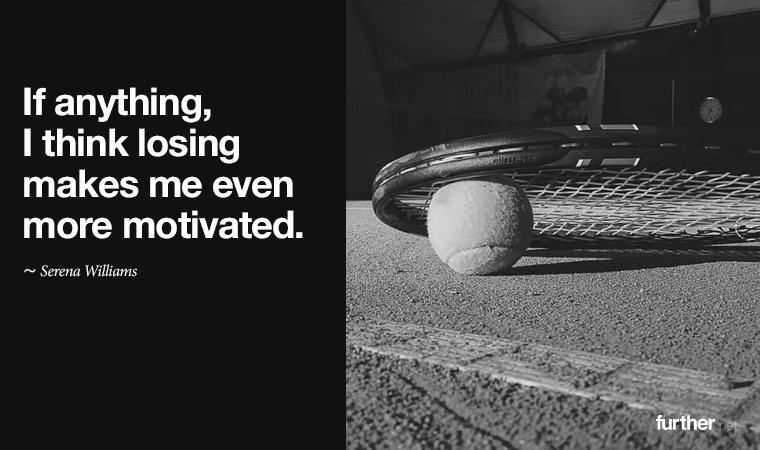
- “Show me a good loser, and I’ll show you a loser.”
Those were the words of Carolina quarterback Cam Newton, the day after he walked out of a press conference following his team’s loss in Super Bowl 50 to Denver. As a Bronco’s fan, I was in a decidedly better mood after than game than Cam was.
Sam Weinman, author of Win at Losing: How Our Biggest Setbacks Can Lead to Our Greatest Gains, thinks that statement is not only wrong, it’s dangerous. What began as an investigation into how to teach his adolescent sons how to better deal with defeat in sports turned into an examination of how losing actually benefits us.
Weinman’s ultimate conclusion comes to this:
- “Being a good loser does not denote some hapless resignation. It implies perspective, resilience, and the quiet confidence that the world will not crumble around you just because of a fleeting setback.”
For example, when Michael Jordan was cut from the varsity squad as a sophomore in high school, it sparked a work ethic that resulted in him becoming the greatest basketball player ever. And yet Jordan won so much, and became so competitive, that he couldn’t adjust to life after basketball, which led to a gambling problem and other issues.
In short, too much winning can actually hurt.
Another anecdote involves Jack Nicklaus, who claims that losing the 1960 US Open when he was still an amateur was a blessing. Winning that tournament, Nicklaus said, would have cut into the motivation that later turned him into the greatest golfer of all time.
Weinman is a sports journalist, so the athletic stories are numerous. But he also examines how losing benefited people like politician Michael Dukkakis, actress Susan Lucci, and founders of startups.
The examination of failed entrepreneurs contains important lessons. These days, there’s almost a fetishization of failure when it comes to startups. Weinman points out that although the shame is rightly removed, without an honest examination of what went wrong that results in lessons learned, losing really is just losing.
The book is heavy on anecdotes, which is usually not a plus for me. But in this case, stories that reveal the enhanced perspective and amazing resilience that comes from defeat help make the win attainable for the rest of us.
Win at Losing: How Our Biggest Setbacks Can Lead to Our Greatest Gains (Amazon Associates link)
Keep going-
Brian Clark
Further
further: resources
Hurts So Good
New research could help explain why brief bodily stresses — going to the sauna or for a run, for example — are good for health and longevity. The same cellular process, called autophagy, that’s key for extending lifespan is also critical to the benefits of temporary stress.
What Doesn’t Kill You Makes You Stronger
Stair Master
31 sedentary young women who did three 20-second bouts of walking up stairs with two minutes of recovery yielded a 12 percent increase in V02 max, a common measure of respiratory fitness.
10 Minutes And Some Stairs Are All You Need To Get More Fit
Buy In
Good news … entrepreneurship through acquisition can work at any point in your professional life. There is no “right” time to start looking for a small business to buy.
You Should Consider Buying a Small Business. But When?
The Money Talk
This is a massive guide to negotiating a higher salary, so you can save more to buy your own business. Great stuff here.
Salary Negotiation: How to Negotiate Better than 99% of People
Enemy Mine
“They” don’t want you to succeed. “They” think you can’t do it. “They” will be proven wrong. Who are they? Doesn’t really matter, as long as you have one.
How to Achieve Your Goals by Creating an Enemy
Ice Ice Baby
A friend of mine took a trip to Iceland to go hiking, and I was drooling over his Facebook photos. It’s definitely on my list, but just remember … just because Iceland is spectacular doesn’t mean Greenland is even better.
Inconvenient Truth
A recent Wall Street Journal column calls attention to the research on what psychologists call information avoidance, also known as strategic ignorance. It’s the totally understandable yet often destructive human impulse to run and hide rather than face uncomfortable truths.
How to Face Uncomfortable Facts
Musicology
There’s always music playing in our house, especially while I’m working (I find silence unsettling when I’m trying to get things done, especially writing). Turns out music makes for a happy home in more ways than one.
How Music Changes Your Behavior At Home
Zuck to Book
Even though I’ve been using it more than I used to, I still wouldn’t mind if Facebook disappeared. I honestly think it’s done more harm than good. But since that’s not likely to happen, it’s up to each of us to make is disappear.
Hijack Your Facebook Habit with a Book-Reading Habit
What, Me Worry?
A new study on how people manage stress while waiting for high-stakes results is a win for those who embrace their anxiety. When the news arrived, the worriers were more elated than their relaxed peers, if it was good; if bad, the worriers were better prepared.
further: sharing
Please forward this issue of Further to a friend who could benefit from it. Or use these easy social options:
